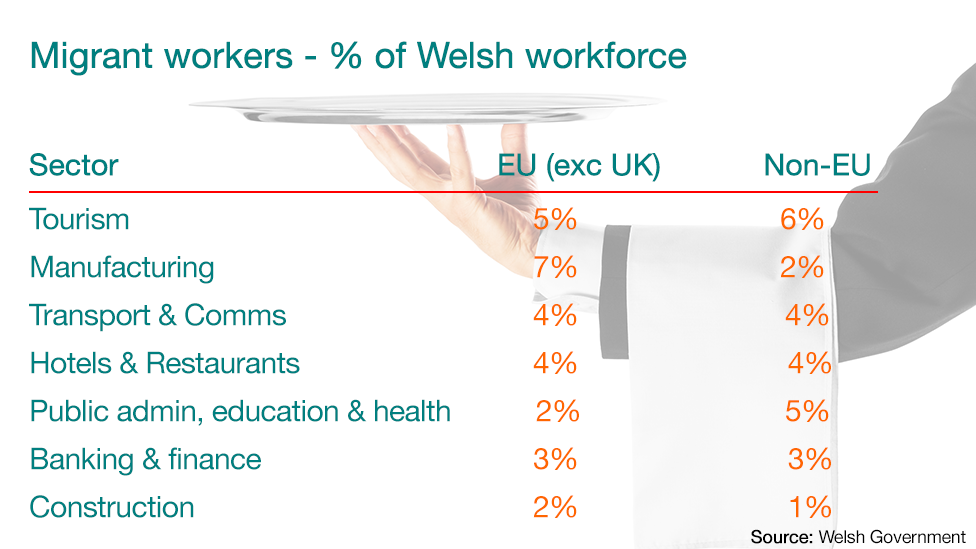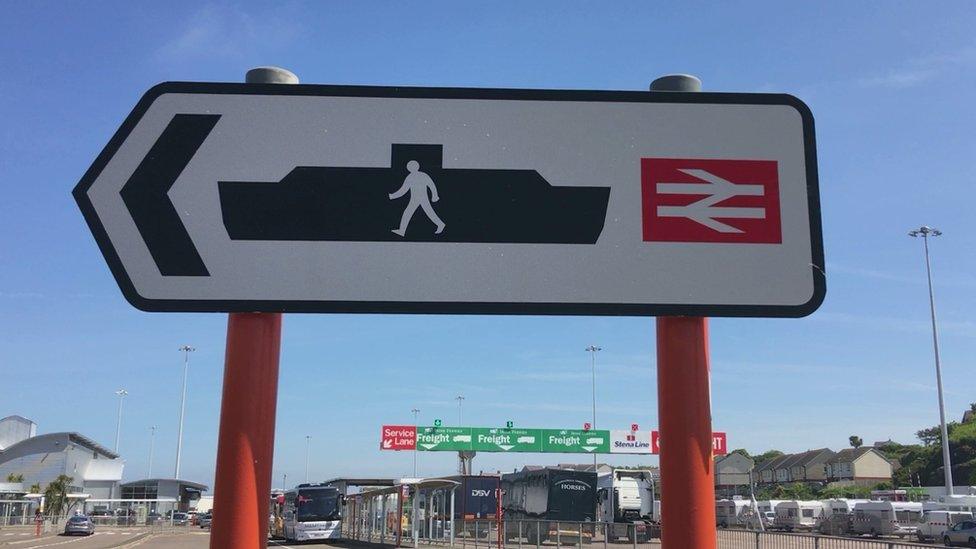Doubts raised over whether Welsh visas would help economy
- Published
Madeleine Sumption of Oxford University said a regional immigration system 'could add complexity'
It is unclear whether immigration rules tailored to Wales' needs would bring economic benefits, a report has said.
The Oxford University report said potential benefits should be weighed against the costs of operating "a more complicated immigration system."
First Minister Carwyn Jones has said there could be a case for a Welsh visa system if the UK government caps immigration numbers after Brexit.
UK ministers said they were "carefully considering" the immigration options.
Immigration policy is currently controlled by the Home Office on a UK-wide basis, with no separate policy for Wales.
According to Welsh Government analysis, EU nationals accounted for 3.5% (48,400) of the total number of working age people employed in Wales in 2016., external
Responding at the time to the report by the All-Party Parliamentary Group on Social Integration, the UK government said different rules for different areas would cause difficulties for employers.
But in its latest report published on Wednesday, Oxford University's Migration Observatory said although regional visa rules "would complicate the management of migration policy for the Home Office, the argument that they would be 'unenforceable' is not well founded."
The report argues that a regional quota system could either be operated by the Home Office or by the Welsh Government.

Madeleine Sumption, the Migration Observatory's Director, said the existence of the Welsh devolution made it "easier to envisage" such a system in Wales, whereas "the English regions currently don't have the political institutions that would be needed for democratic input into migration policy".
She added: "There's no objective way to agree what regional economic needs for migration actually are, so it's difficult to know whether greater regional control would bring economic benefits.
"Any benefits would have to be weighed against the administrative costs of moving to a more complicated immigration system."
Calls have been made for Scotland and London to have control over parts of immigration policy.
In its policy paper on migration published in September, the Welsh Government said it was not seeking a Welsh quota of EU workers, external but argued that it would push for a regional system if the UK government were to pursue an immigration policy based on the needs of different industries.
Speaking in the Senedd on Tuesday, First Minister Carwyn Jones said a regional visa system was "an interesting idea".
"It is done in Canada, it is done in Australia. Alright, they are far bigger but it's not impossible to do this.
"Personally, I'd prefer there not to be a cap but if there is to be a cap then I think then there is a case for looking carefully at whether regional quotas would work, particularly whether they'd work for Wales," he added.
'Tailor-made'
Plaid Cymru's Brexit spokesman Steffan Lewis said: "There is increasing evidence that, having left the European Union, Wales will be left with a skills crisis as the UK government sticks rigidly to an unworkable migration cap.
"Given the value to Wales of overseas workers in our health care and private sectors, Welsh Government must make the case for a tailor-made immigration policy for Wales."
The Home Office has asked the independent migration advisory committee to "assess the economic and social impact of EU citizens in all parts of the UK".
Its consultation closes on Friday.
- Published25 October 2017

- Published7 September 2017

- Published5 January 2017

- Published17 October 2017

- Published16 October 2017
